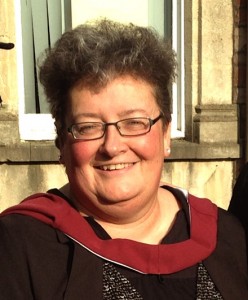 Tessa Coombes is a first year postgraduate researcher in the School for Policy Studies. After recently completing the MSc in Public Policy at the University of Bristol, she decided to stay on and continue her research interest in politics, policy process and housing. Her research is focused on how housing policy is treated at a time of political change. Using the Bristol Mayoral Election 2016 as the basis of her study she will look at agenda setting, influence and policy change in Bristol.
Tessa Coombes is a first year postgraduate researcher in the School for Policy Studies. After recently completing the MSc in Public Policy at the University of Bristol, she decided to stay on and continue her research interest in politics, policy process and housing. Her research is focused on how housing policy is treated at a time of political change. Using the Bristol Mayoral Election 2016 as the basis of her study she will look at agenda setting, influence and policy change in Bristol.
I’ve just about reached the half-year mark in my PhD, that is, I started my PhD just six months ago. It seems like longer but also like no time at all. Over the last month or so I’ve been putting together a PhD plan to identify what I need to do, and when, over the next three years. This is just an initial sketch and broad outline, but is a guide to setting more detailed objectives, something I have now done for the next six months. The thing that struck me most is that three years isn’t very long. When you begin to break it down into small chunks of work to be done before you start the fieldwork, the first 12 months vanish very quickly under a myriad of literature, methods, organising and planning.
One of the things I realised very quickly when drawing up my plan, is that I don’t really quite know what my research is about. Well, I know the broad area I’m interested in and I know what I want to study. But I’ve a long way to go before I am fully cognisant with the existing literature in my field and before I fully appreciate the complexities of specific methods of research. I’ve started that process of understanding but have so much more to learn. Indeed, I spent much of the first six months studying research methods through taught courses and assignments. About five months too long in my view, but a necessary evil and a key part of any PhD programme.
I have now begun the topic-based literature search process in earnest. I’m trying to use some of the things I learnt during my research methods training to ensure I undertake a somewhat more systematic approach than I would normally adopt. I’ve set out key search terms, established where I’ll search for information, decided on exclusion and inclusion criteria and I’ve set up a comprehensive system for logging all the information I collect throughout the months of searching and reading. That’s far more organised than I’ve ever been in the past when it comes to seeking out literature.
Now I’m a month or so into the process I am beginning to feel slightly overwhelmed – not just by the amount of literature that I need to consume but also by the complexity and language used in some of it. Once more it leaves me feeling a little stupid and frequently bemused. I find myself asking the following question regularly: “why am I doing a PhD, what on earth made me think I was clever enough to try?” Maybe this relates to the “imposter” syndrome others have mentioned in their blogs and I guess most researchers will ask themselves that question, or something similar, throughout their research. It could be seen as a negative thought process but for me it’s a useful prompt, that pushes me harder to prove a point, that yes I can do this but it’s going to be tough.
So, what am I actually doing and what is my PhD about? I feel like I am getting closer to the answer to that and I feel a little more comfortable that I have a topic worth researching, that might even be of interest to someone other than me. Over the last month or so I’ve tried out a few different versions of my response to this question in order to see which works best and how people respond. I’ve come up with a variety of short answers, depending on who is asking. For now, I’ll say my PhD is about agenda-setting, power and influence, using the Bristol Mayoral election in 2016 as a case study. I’m doing an ethnographic study, which seeks to provide a better understanding of the tactics used by different actors to move housing issues up (and down) the political agenda. I am interested in how actors at the centre of the action perceive and respond to influence and lobbying and how the newly elected mayor will decide on policy priorities and change. I’m hoping it will be of interest to scholars of the policy process, to those with an interest in political change and will also help practitioners to understand how power and influence works at a local level.
That’s what I’ll be spending the next 3 years learning all about and I’m both excited and daunted by the prospect. A PhD is an individual learning process and one where I am in the driving seat. It’s totally different to what I have been doing for the last 20 years in work so it’s challenging, which is part of what makes it worth doing. But above all, it’s interesting, as my PhD brings together, in one study, many of the things that I find fascinating: housing, policy, politics, and Bristol.


